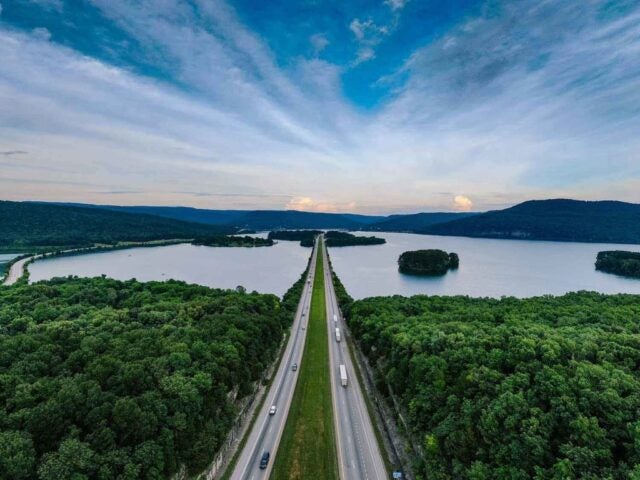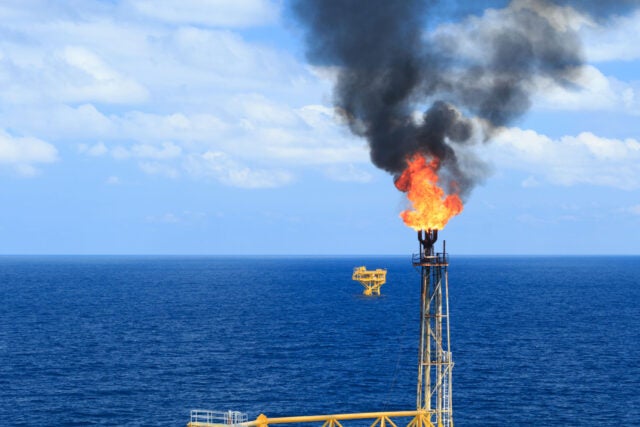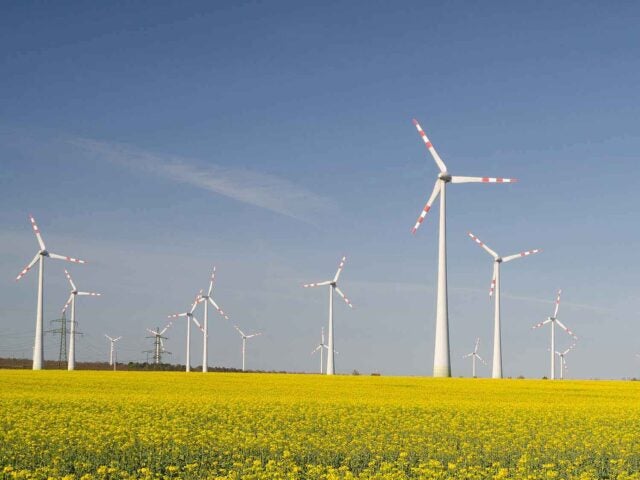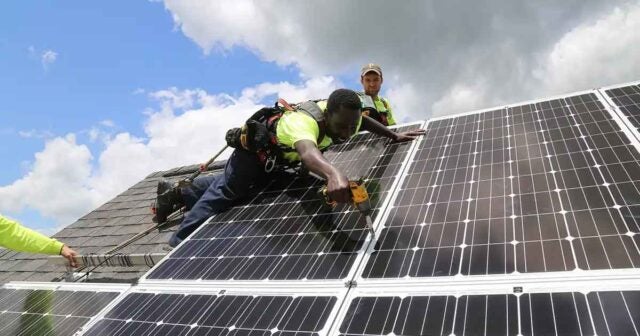- Resources
- Pathways to Net Zero: The innovation imperative
Resources
Pathways to Net Zero: The innovation imperative
Published: October 25, 2022 by Elizabeth Sturcken
The tools to innovate
The willingness of the private sector to act on climate has never been stronger – and yet, current rates of progress remain insufficient to realize the commitments made under the Paris Agreement. For companies deploying existing abatement solutions and still coming up short on reaching net zero, innovation and technological advancements are essential to bridge the gap.
This report, produced in collaboration with Deloitte Consulting, demystifies the landscape of climate technology and provides a clear set of recommendations for how business leaders and investors can lead in a low carbon future.
$38 trillion funding gap
The IPCC estimates $48 trillion in investment needed from 2020-2050 to reach net zero. We’re currently on track to spend just $10 trillion, leaving a $38 trillion funding gap.
Act and advocate
This report focuses on the collective action and advocacy opportunities available to companies and investors interested in catalyzing technological breakthroughs as part of the global effort to reach net zero and bridge the “net zero gap” for funding by 2050.
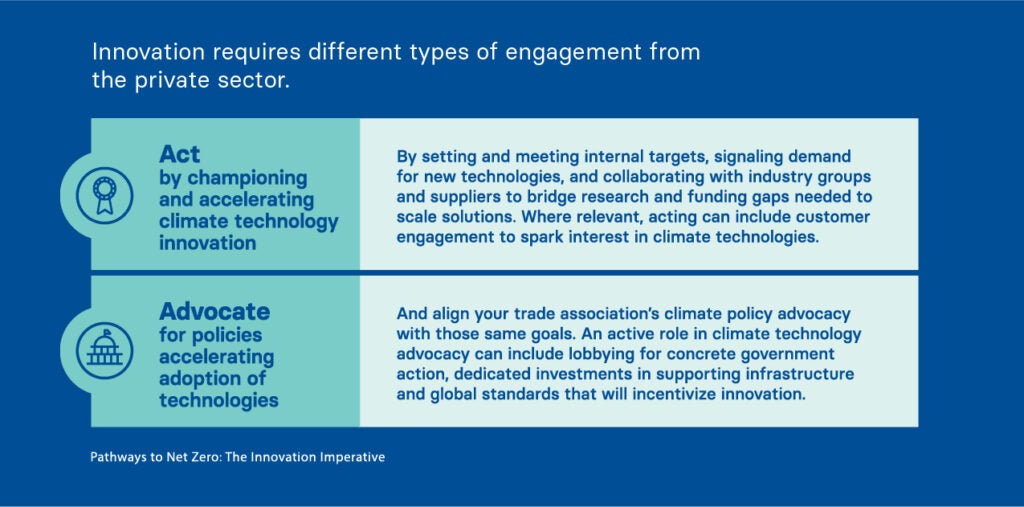
Interconnected systems of “The Big 3”
Climate technology — along with behavior change and natural climate solutions — represents one of the main categories of abatement solutions that can help reach net zero. In order to tackle emissions, which flow through a series of interconnected systems, we must look at solutions across “The Big 3” energy technologies.
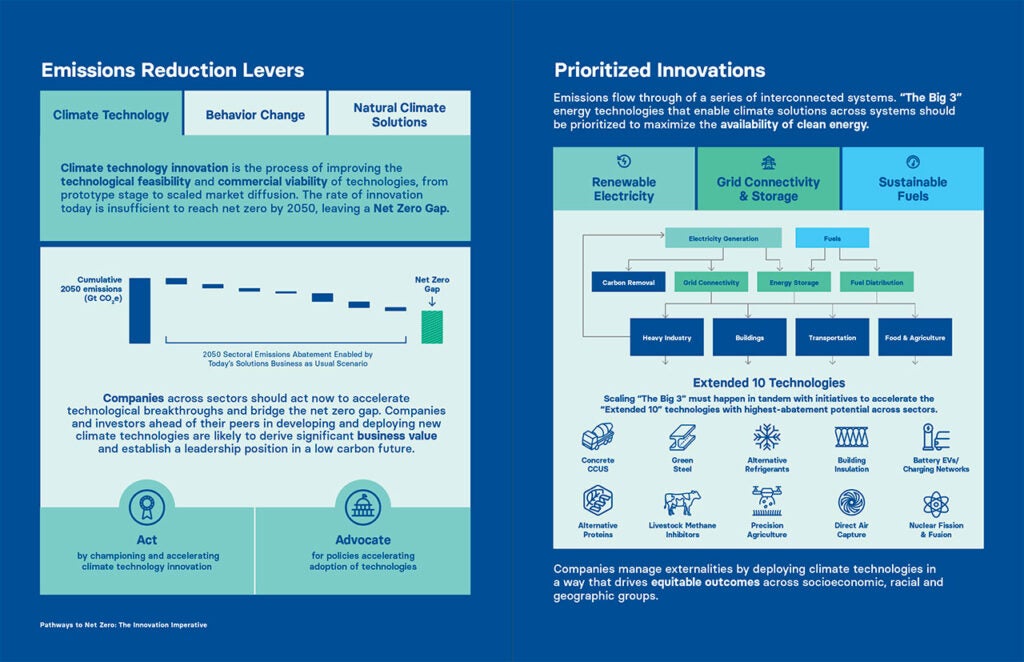
“The Extended 10”
In addition to accelerating “The Big 3,” deploying a portfolio of ten “extension technologies” can drive climate abatement across end-use systems. Each system here contains a set of climate technologies that can reduce or remove GHG emissions within and across sectors.
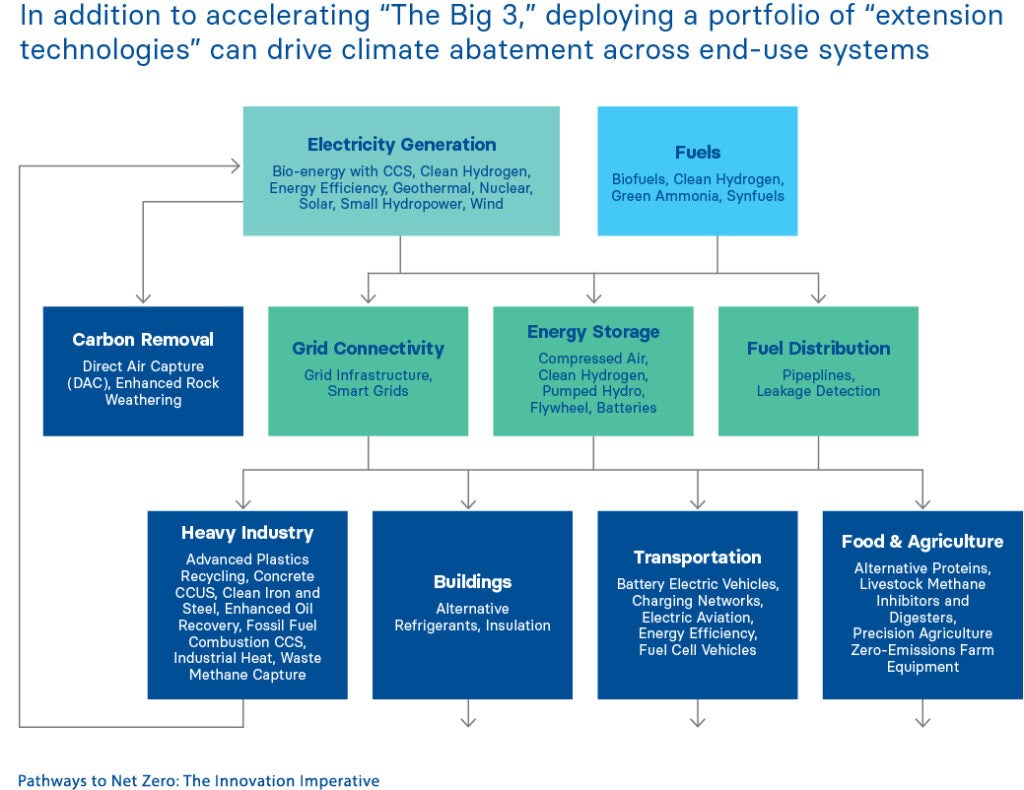
Below, we look at best-case scenario projections of the cumulative abatement impact of each selected technology between 2020 and 2050. The relative sizes of the bubbles provide directional guidance on each technology’s potential for impact, depending on the deployment rates of other climate technologies as well as investments supporting adoption.
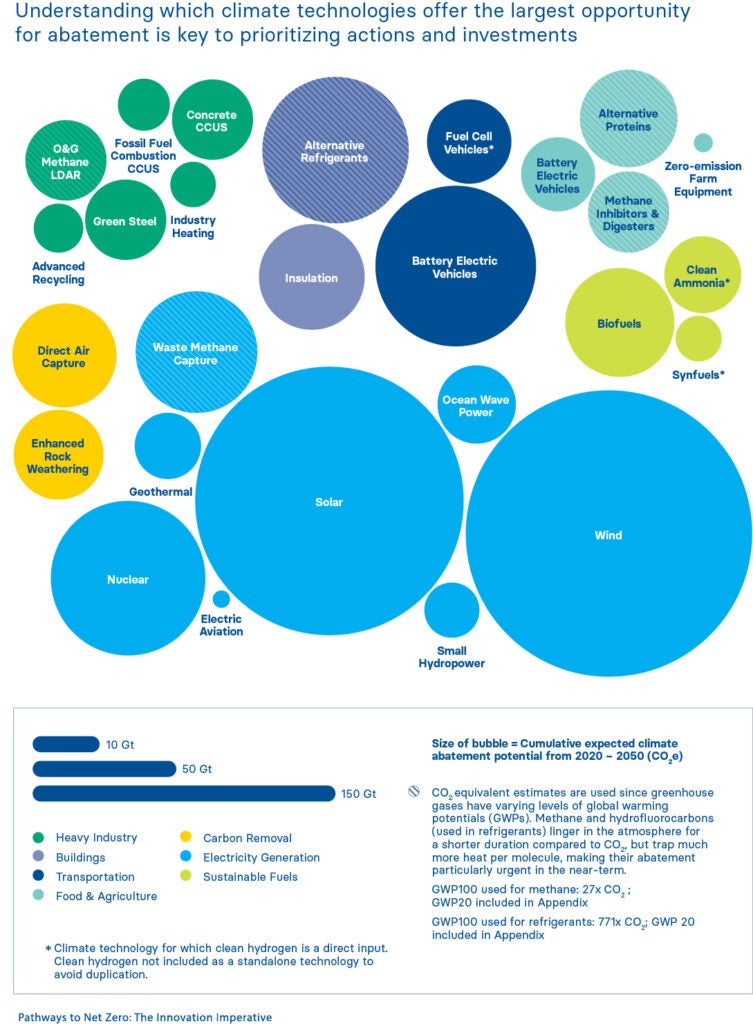
Pathways to Net Zero: The innovation imperative
An in-depth report on the climate technologies and innovation opportunities critical to unlocking a net zero future.
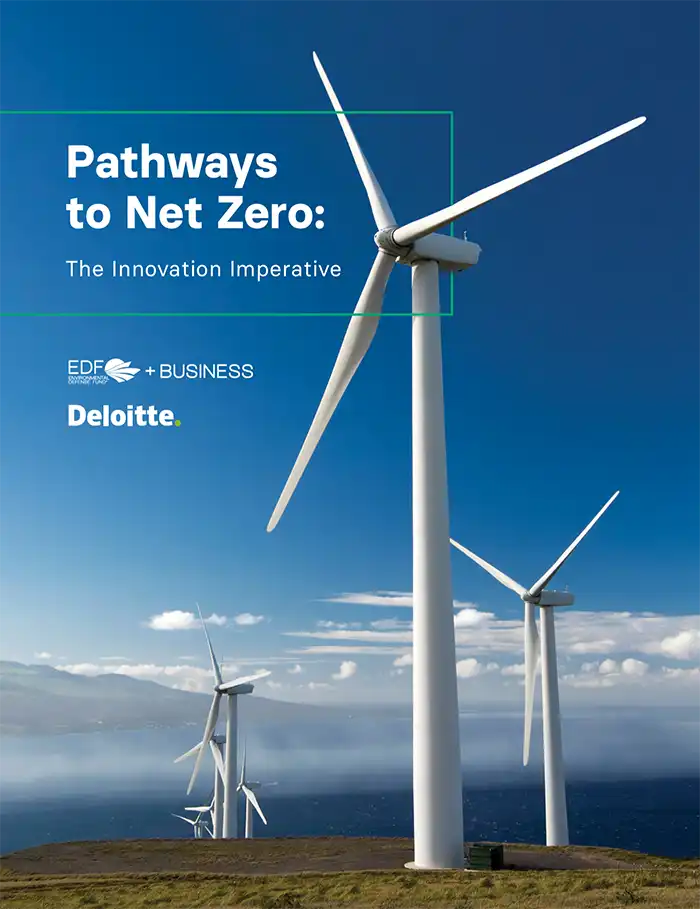

-
Net Zero Action AcceleratorLearn More

